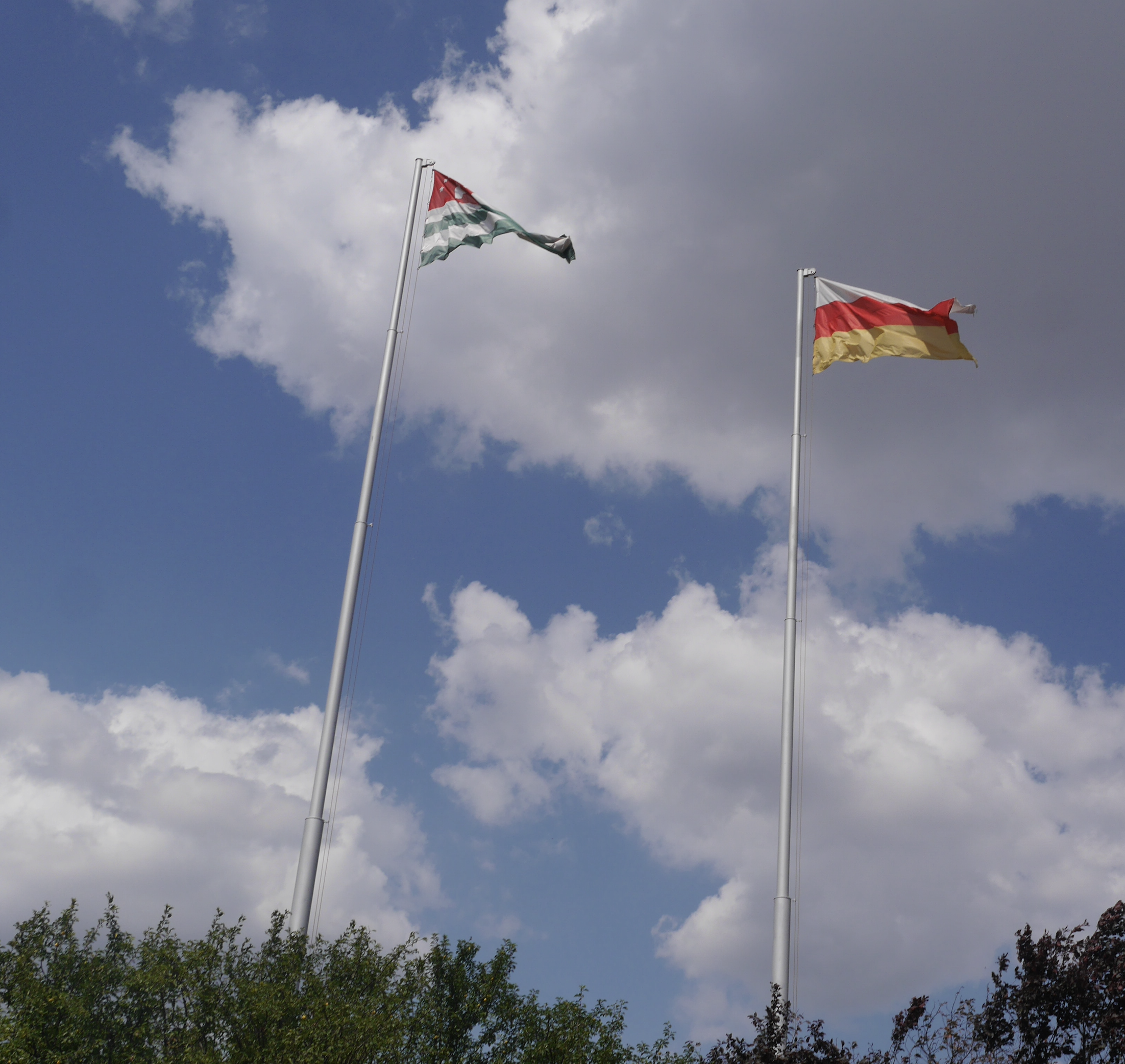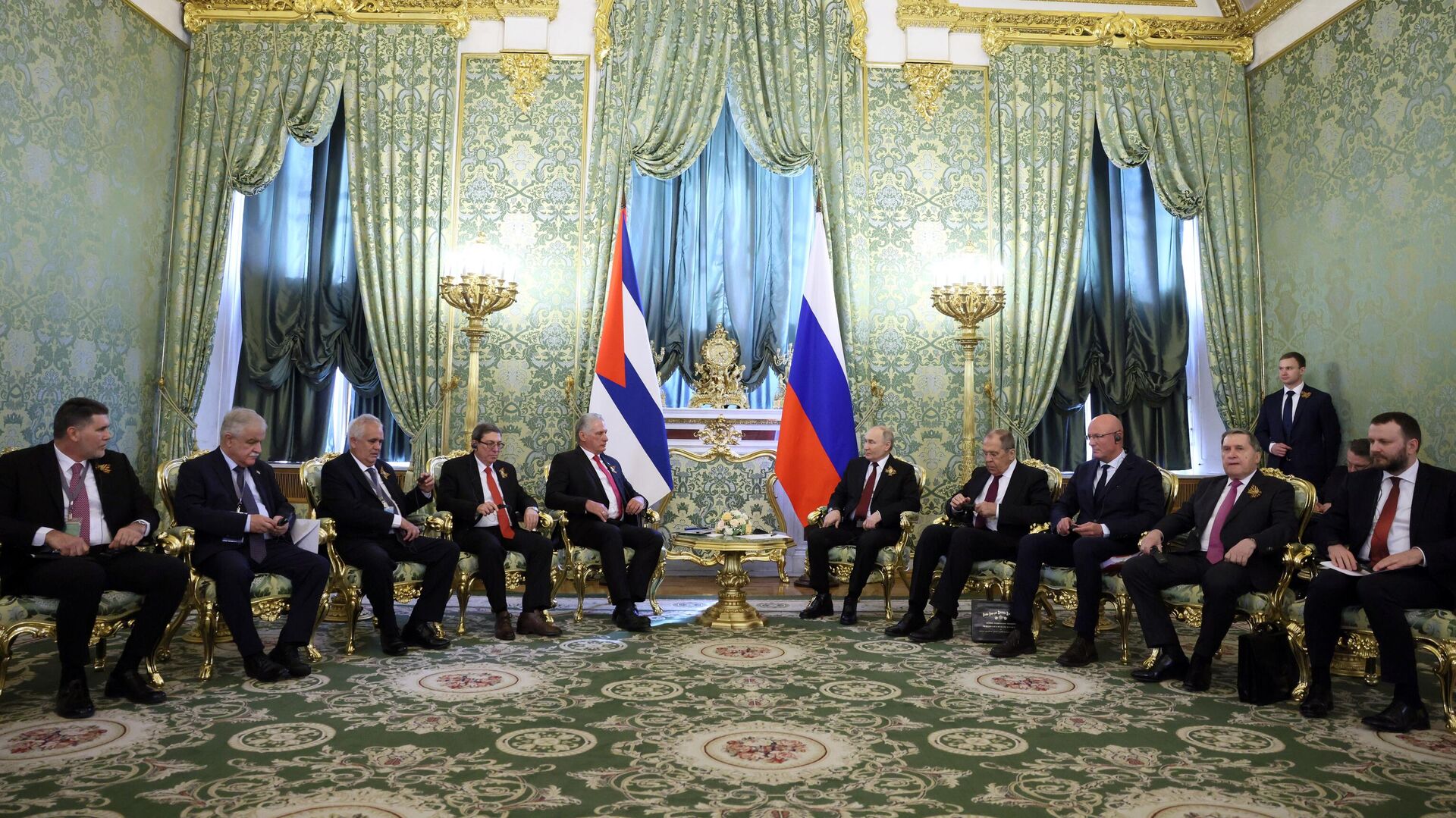
Russia Recoils From Possibility of Stable Relationship With US
Russia Recoils From Possibility of Stable Relationship With US
The traditional May 9 Victory Day parade in Moscow was not a grand affair this year, unlike the one originally planned for 2020, which had to be postponed and curtailed because of the severe aggravation of the COVID-19 pandemic. The rumble of tanks on Red Square last Sunday signified, nevertheless, that the pause in Kremlin policymaking caused by the extended May holiday (see EDM, May 3) is over, and the instrument of choice in Russian foreign policy—military might—is ready for new demonstrations and deployments. President Vladimir Putin was content to take a break from “irksome” matters such as the violent border conflict between Kyrgyzstan and Tajikistan or the diplomatic row with the Czech Republic (Carnegie.ru, May 4). Rather than spend any more time on those, Putin likely believes he needs to prepare political ground for the planned summit with United States President Joseph Biden in mid-June, even if insightful analysts in Moscow play down expectations for any sort of breakthrough (Russiancouncil.ru, May 6).
Biden’s offer is clear: if Russia refrains from troublemaking and plays by international rules, the US is ready to develop stable relations (Riddle, May 5). This proposition was elaborated at the meeting of G7 foreign ministers in London last week (May 3–5), where Russia was a major theme for discussions. Notably, the seven participating powers decided to soften their final resolution from wording about deterring multiple threats to expressing a preference for reducing tensions (Nezavisimaya Gazeta, May 5). The problem for the Kremlin with this invitation to refrain from military threats, cyberattacks and other international security transgressions is that Russia’s role in European affairs would then shrink to irrelevance, instead of desired dominance over its recognized domain (see EDM, May 6). Foreign Minister Sergei Lavrov forcefully rejected the plan to make Russia abide by Western rules, decrying it as a malicious attempt to exercise “totalitarianism” in world affairs (Kommersant, May 7).
The main cause of Lavrov’s outburst at the virtual meeting of the United Nations Security Council were the sanctions imposed and constantly fine-tuned by the US and the European Union, which the Russian leadership tries simultaneously to shrug off as insignificant and to make into an excuse for the poor performance of Russia’s economy (RBC, May 4). The latest set of US sanctions introduced in mid-April was less severe than many in Moscow had expected, so now every seeming indication that Biden’s team has no intentions of adding more punitive measures is eagerly amplified by Russian media (Izvestia, May 8). The disturbing prospect for Russian politicians and oligarchs, however, is that the US government, following Biden’s executive order, is preparing steps that would deliver effective punishment for the next Russian breach of the rules; and even the usually hesitant European Parliament recently adopted, by an extraordinary margin, a resolution suggesting a ban on imports of oil and natural gas from Russia, among other measures (Rosbalt, May 6). The sanctions regime, therefore, has a stronger deterrent than destructive effect on the Russian economy, and the already imposed penalties for multiple misdeeds deny the Kremlin the opportunity to “weaponize” energy exports even as a counter-measure of last resort (Moscow Echo, April 28).
It is not sanctions but bad domestic policies that hamper a strong post-pandemic recovery and sustain the decline of household incomes, which is the main worry for the majority of Russians (Nezavisimaya Gazeta, May 7). The Kremlin increasingly relies on police power to suppress discontent, but as many Russian economists argue, repressions are costly and have turned into a major factor contributing to chronic economic stagnation (Ezhednevny Zhurnal, May 6). Despite all the propaganda and self-glorification, which typically focuses on the Soviet victory in World War II but hides its horrible human price, Russia’s international image molds into a brutal and backward dictatorship, draining its resources of “soft power” (VTimes, May 5). The persecution of the political opposition and curtailing of media freedom are not merely internal affairs but violations of international norms. And the G7 meeting confirmed that the West recognizes the connection between the rise of Russian repressions at home and Moscow’s aggressive behavior abroad (Novaya Gazeta, May 6). Russia seeks to join forces with China in a counter-offensive against this “interference.” As such, Lavrov lashed out against the US plan to convene a summit of democracies, warning that it would cause a further escalation of global tensions (TASS, May 7).
Ukraine remains the pivotal problem in developing Biden’s draft strategy for stabilizing relations with Russia because for Putin’s regime the prospect of successful reforms resulting in a steady Westernization of this neighbor-state remains unacceptable (Forbes.ru, May 7). Russia’s crude military pressure on Ukraine has eased since the start of May, but preparations for resuming it as swiftly as Moscow would find opportune are continuing and naval tensions in the Black Sea remain dangerously high (Newsru.com, May 6). The visit of US Secretary of State Antony Blinken to Kyiv, on May 6, was supposed to reassure Ukrainians of Washington’s firm support and discourage Russia from further provocations, but it was perceived in Moscow as a demonstration of the North Atlantic Treaty Organization’s (NATO) hostile intentions (Kommersant, May 6). President Volodymyr Zelenskyy invited several Western ambassadors to accompany him on a trip to the Donbas war zone, seeking to give impetus to discussions in the EU regarding expanding military support for Ukraine, which has positioned itself as a crucial pillar of European security (Nezavisimaya Gazeta, May 6). As new information continues to surface about Russian military intelligence (GRU) operations targeting facilities and “hostile” actors in Central and Southeastern Europe, European politicians are more clearly beginning to recognize the urgency of collective measures against the corrupt networks enabling these crimes (New Times, May 7).
Conventional political wisdom says that Russia stands to benefit from more stable relations with the US and Europe, which should theoretically alleviate Russia’s persistent fears of a NATO invasion. This rationale, however, does not apply to the Putin regime—and not only because the latter needs to exaggerate external threats in order to justify its domestic repressions and explain away economic failures. Every step in bolstering solidarity among Western democracies and in upholding democratic values constitutes a threat to the existence of this corrupt autocracy, and no détente or a “reset” can possibly mitigate that threat in the Kremlin’s eyes. From the West’s side, containment can undermine Russia’s ability to project military might, but such a strategy is always a work in progress, and the Kremlin will try to exploit every opening for dialogue in order to undercut and erode Western commitment to these goals.


